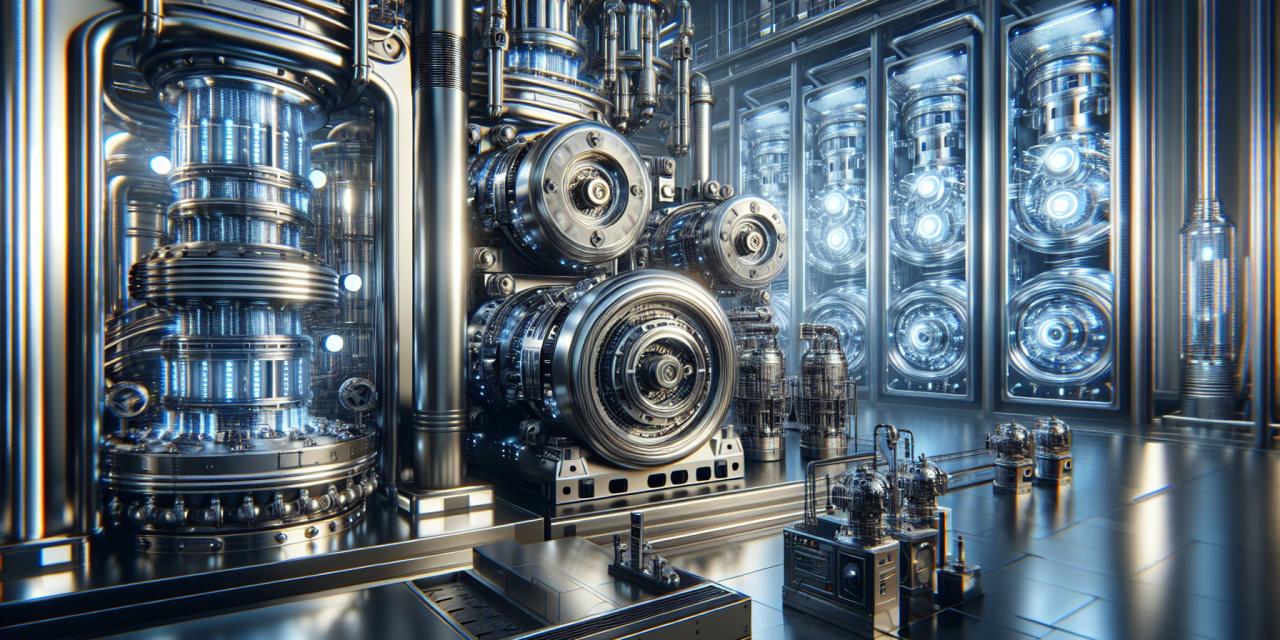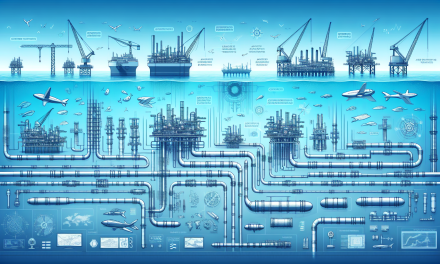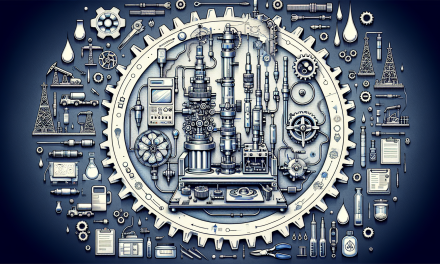Table of Contents
- 1. Introduction
- 2. What Are Compressors?
- 3. Importance of Advanced Compressor Technology
- 4. Latest Innovations in Compressor Technology
- 5. Applications in Various Industries
- 6. The Future of Compressor Technology
- 7. FAQs
- 8. Conclusion
1. Introduction
In today’s fast-paced industrial landscape, advanced compressor technology stands at the forefront of innovation. Engineers and technicians constantly seek out new ways to enhance efficiency and improve performance in various applications. For those curious about how these technologies shape industries and streamline processes, this article dives into the mechanics, innovations, and future of compressor technology.
2. What Are Compressors?
Compressors are mechanical devices that increase the pressure of a gas by reducing its volume. They play a crucial role in numerous applications, from industrial manufacturing to HVAC systems. By converting power (using an electric motor or a gas engine) into kinetic energy, compressors facilitate the movement of gases, helping to generate the necessary pressure for various operations.
Types of Compressors
Several types of compressors exist, each tailored to specific applications. Here are the most common types:
- Positive Displacement Compressors: These compressors operate by trapping a fixed amount of air and then forcing it into a smaller space.
- Dynamic Compressors: These utilize a rotating element to impart velocity to the gas, which then converts to pressure.
The choice of compressor type significantly influences efficiency, energy consumption, and suitability for particular jobs.
3. Importance of Advanced Compressor Technology
Advanced compressor technology has reshaped the efficiency and capability of numerous systems within various industries. By delivering better performance and higher efficiency, these technologies contribute significantly to cost savings and sustainability.
Energy Efficiency
High-performance compressors reduce energy consumption, leading to lower operational costs. Innovations in design and construction materials have further enhanced efficiency levels, demonstrating the tangible benefits of adopting advanced technologies.
Operational Reliability
Modern compressors boast improved reliability and longevity, thanks to advancements such as digital monitoring systems. These systems continuously assess compressor performance and provide real-time feedback, allowing timely maintenance before critical failures occur.
4. Latest Innovations in Compressor Technology
The landscape of compressor technology continually evolves. This section explores the latest innovations that promise to shape the future.
Smart Compressors
Smart compressors utilize IoT technology to monitor real-time data. This ability optimizes performance, enhances predictive maintenance, and ultimately increases operational efficiency. With features such as remote diagnostics and automatic adjustments, smart compressors represent a significant leap in technology.
Enhanced Materials
Advanced materials, including composites and alloys, have revolutionized compressor design. These materials offer better strength-to-weight ratios, resulting in lighter and more efficient compressors. Additionally, they withstand higher pressures and temperatures, further expanding application possibilities.
Advanced Control Systems
Today’s compressors come equipped with sophisticated control systems that allow for precise gas handling. These systems can automatically adjust operating parameters to optimize performance based on specific needs, leading to increased efficiency and reduced wear and tear.
Energy Recovery Systems
Energy recovery systems capture waste heat generated during the compression process. This recovered energy can be reused, improving overall process efficiency. By employing these systems, industries can significantly lower their energy consumption and operational costs.
Advanced Compressor Technology Training: Latest Innovations
For those interested in harnessing the latest innovations in compressor technology and optimizing their operations, exploring comprehensive training opportunities is essential. One such opportunity can be found here.
5. Applications in Various Industries
Advanced compressor technology finds its application in sectors such as oil and gas, pharmaceuticals, manufacturing, and even renewable energy. Let’s take a closer look at some of these applications.
Oil and Gas Industry
Compressors play a pivotal role in the oil and gas sector. They help transport natural gas, manage refinery processes, and ensure the safe storage of hydrocarbons. The efficiency and reliability of advanced compressor systems directly impact productivity in this sector.
- For an in-depth exploration of hydrocarbon production, check out Unlocking the Secrets of Hydrocarbon Production.
Pharmaceuticals
In the pharmaceutical industry, advanced compressors ensure the accurate delivery of gases used in various processes. They help maintain stringent quality and safety standards, critical in this sector.
Manufacturing
The manufacturing sector relies on compressed air for numerous applications, from powering tools to operating machinery. Innovations in compressor technology lead to substantial improvements in efficiency and cost-effectiveness.
Renewable Energy
Compressors also play a significant role in the renewable energy sector, particularly in systems that support hydrogen production and storage. The future will likely witness increased integration of these technologies as the world shifts towards sustainable energy solutions.
6. The Future of Compressor Technology
The trajectory of compressor technology suggests a bright and innovative future. As industries grapple with the challenges of energy consumption and environmental sustainability, the development of more efficient and eco-friendly compressors remains paramount.
Digitalization
As digital technologies advance, they will play a crucial role in shaping the future of compressor systems. Anticipating problems before they arise, digitalization will lead to seamless operations and enhanced reliability.
Regulatory Compliance
With global emphasis on environmental standards, compressor manufacturers are likely to invest more in developing technologies that meet stricter regulations. Innovations that reduce emissions and energy consumption will gain prominence as sustainability becomes a core business strategy.
7. FAQs
What are the main types of compressors?
The two main types of compressors are positive displacement compressors and dynamic compressors. Each type serves different applications and has unique operational mechanisms.
How do I choose the right compressor for my application?
Choosing the right compressor involves evaluating your specific needs, including the gas type, intended application, and efficiency requirements. Consulting with experts can provide valuable insights to guide your choice.
What are the benefits of smart compressors?
Smart compressors offer real-time data monitoring, enhanced predictive maintenance capabilities, and automatic adjustments. These features significantly increase operational efficiency and reliability.
How can I improve the energy efficiency of my existing compressor system?
Improving energy efficiency may involve retrofitting existing systems with advanced control technologies, optimizing settings, and performing regular maintenance.
8. Conclusion
In conclusion, advanced compressor technology continues to transform industries by enhancing operational efficiency and reducing costs. By adopting the latest innovations and focusing on energy efficiency, businesses can position themselves for future success. For professionals seeking to deepen their knowledge, comprehensive insights and pathways can be explored further through specialized training and resources. Additionally, enhancing your understanding of related topics can strengthen your position in the field. For instance, consider exploring subjects such as transforming your career in oil and gas management, mastering political risk management, maximizing efficiency in finance, and efficiency in industrial instrumentation. Embracing these innovations in compressor technology ensures businesses will remain competitive in an ever-evolving industrial landscape.





